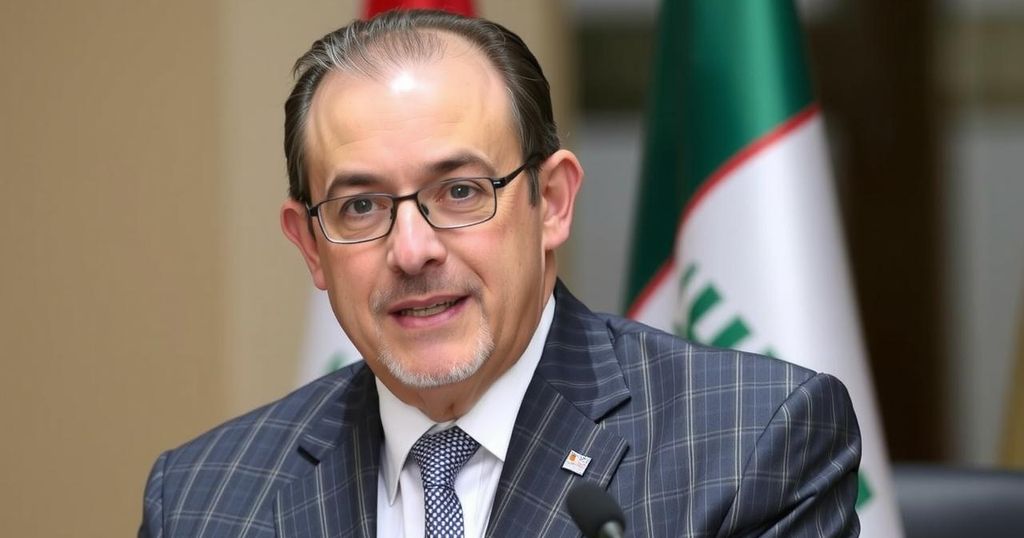World news
AFP, AO, AOUN, ASIA, COURT OF JUSTICE, DEMOCRACY, EUROPE, HAGUE, HAMAS, HEZBOLLAH, HUMAN RIGHTS, IC, ICJ, INTERNATIONAL COURT OF JUSTICE, ISRAEL, LEBANON, MIDDLE EAST, MIKATI, NAJIB MIKATI, NETHERLANDS, NORTH AMERICA, OPPOSITION, POLITICS, PRESIDENTIAL ELECTION, THE HAGUE, UNITED STATES
Fatima Khan
0 Comments
Lebanon Appoints Nawaf Salam as New Prime Minister Amid Economic Crisis
Lebanese President Joseph Aoun has named Nawaf Salam, an ICJ judge, as prime minister following extensive parliamentary support. This marks the end of a two-year caretaker government. Salam’s appointment is seen as a potential turning point for Lebanon’s severe economic crisis and political reform efforts, but he faces significant challenges ahead.
On Monday, Lebanese President Joseph Aoun appointed Nawaf Salam, a presiding judge at the International Court of Justice in The Hague, as the new prime minister. This appointment comes after an extensive period of two years during which Lebanon was governed by a caretaker administration amid an escalating economic crisis. Negotiations led to the endorsement of Salam by a majority in parliament, signifying a shift in governance as the country grapples with significant challenges, including the need for widespread reforms and reconstruction efforts devastated by prior conflicts.
Lebanon has been enduring severe political and economic instability, exacerbated by a two-year caretaker government that has failed to address the nation’s financial collapse. The recent election of President Aoun, following a prolonged vacancy in the presidency, aimed to initiate a new phase in governance. Nawaf Salam’s selection as prime minister represents hope for overcoming entrenched corruption and reviving the economy, as he is regarded as an impartial figure by his supporters. The political landscape is influenced by groups such as Hezbollah and their diminishing regional power following their setbacks in conflicts.
The appointment of Nawaf Salam marks a vital step towards political revitalization in Lebanon after years of governmental inertia. The backing from a significant faction of lawmakers indicates a potential for collaborative governance. However, the task ahead for Salam is formidable; he must navigate deep-seated political divisions while implementing essential reforms to secure international assistance and restore stability in the war-torn nation.
Original Source: www.hindustantimes.com




Post Comment